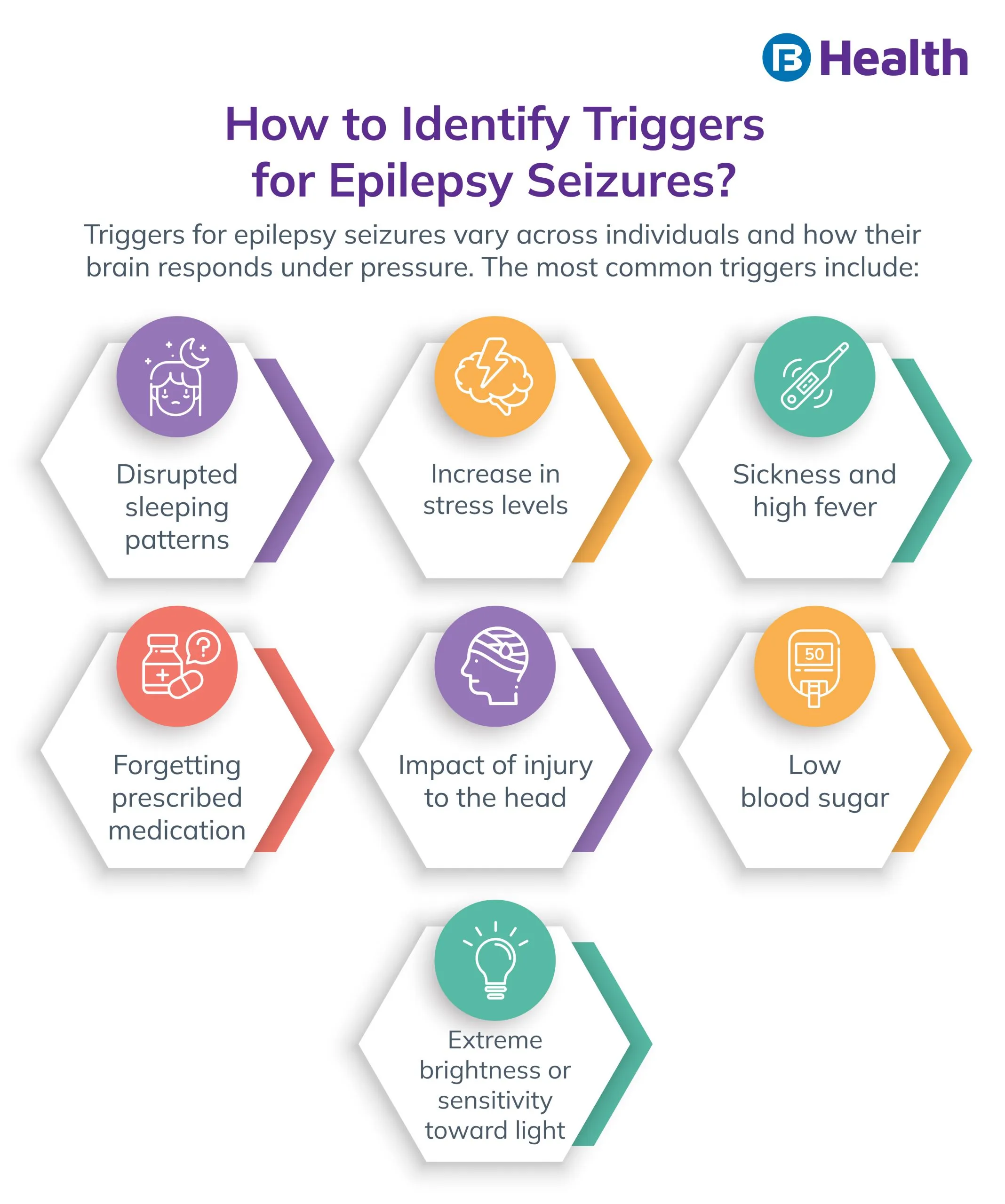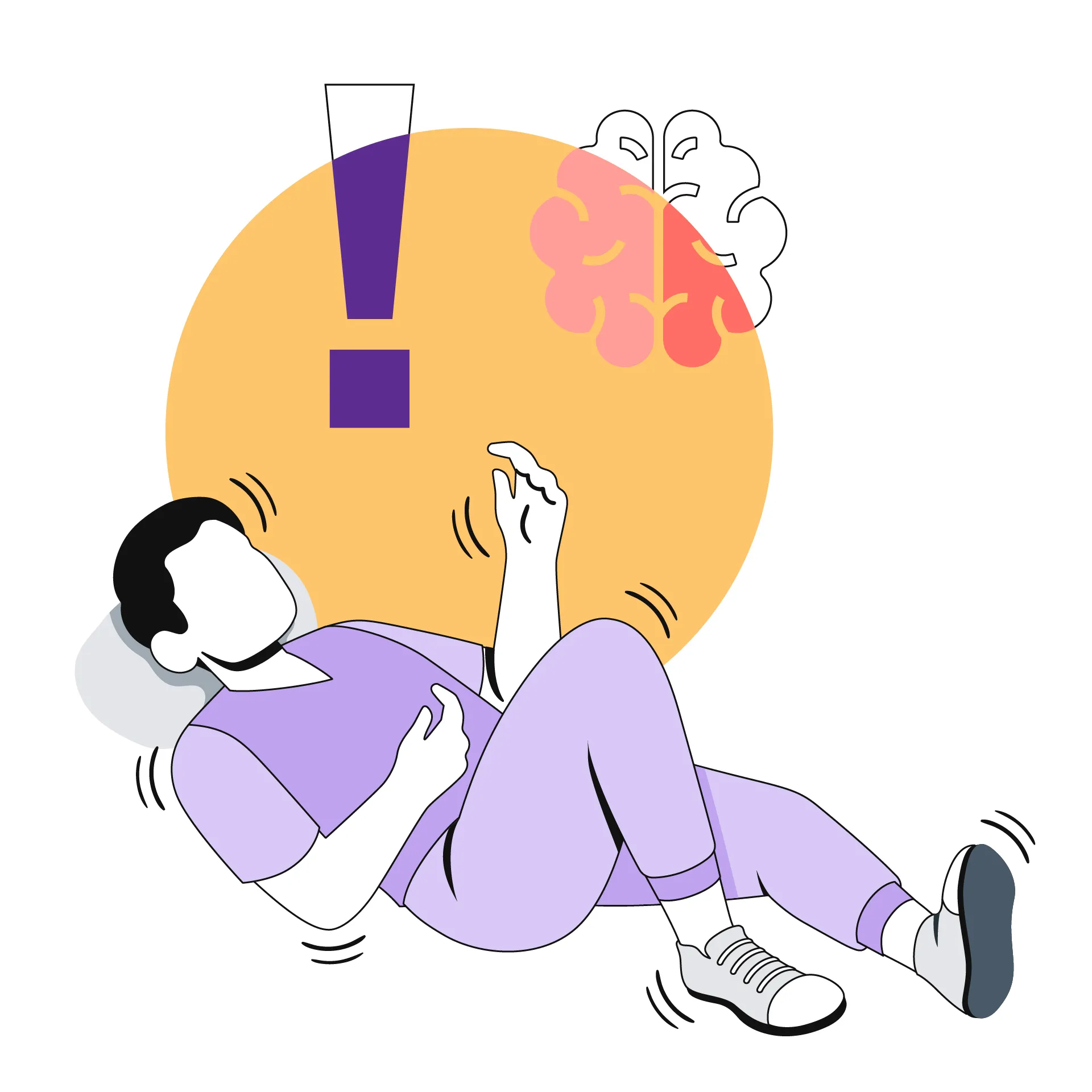Psychiatrist | 4 min read
Epilepsy Seizure: Causes, Types and Symptoms
Medically reviewed by
Table of Content
Key Takeaways
- Epilepsy seizure is a central nervous system disorder linked to brain anomalies
- Epilepsy seizure symptoms vary across individuals and can have long-term effects
- Knowing the types of seizures and their triggers can help you manage them better
Seizures are linked to the brain and can affect its functions drastically. So, it is important to monitor seizures and understand their type and triggers. Wondering what a epilepsy seizure is? It is an abnormal brain activity that sends a gush of electrical current to the brain, making the body respond with jerks or other reactions.
Before we go on to understand epilepsy seizures in detail, let's take a look at the types of seizures to better get a grasp of what a seizure is.
What are the types of seizures?
Depending on the location and onset of seizures, there are two main types of seizures –generalized seizures and focal seizures. In the first case, the jerks and seizures affect the whole brain. In the case of focal seizures, which are also known as partial seizures, only a part of the brain is affected.
Generally, seizures last for a few seconds. These are considered mild seizures. Owing to their lower frequency of occurrence, they can be difficult to identify. On the other hand, heavy spasms and uncontainable muscle twitches are identified as strong seizures and can last for several minutes. They may lead to a lot of health problems and have an effect on the consciousness of an individual.

What are the common symptoms of an epilepsy seizure?
Epilepsy is a disease related to the central nervous system and is more common in kids and young adults. Unfortunately, there is no definite cure for epilepsy. In most cases, the doctor treats the symptoms of epilepsy and tries to keep the triggers for the seizures under check. This helps patients avoid an epilepsy seizures as much as possible.
The common symptoms of epilepsy seizures are:
- Extreme to low unresponsiveness
- Inability to taste or smell and alterations in sight, hearing, or touch
- Feeling extreme to controlled dizziness
- Heaviness in limbs and feeling tingling and twitching of limbs
- Unconsciousness

What causes an epilepsy seizure?
Depending on the various epilepsy types as categorized by doctors, the cause of an epilepsy seizure can vary. Normally, it is a direct effect of brain injury or trauma. In most cases, epilepsy's onset is signaled by a severe brain hemorrhage. It may also be the side effect of a serious illness, which may have affected the brain in some way.
Another cause of an epilepsy seizure is a tumor or cyst in the brain or a lack of oxygen reaching the brain. Dementia, including Alzheimer's, can also lead to epilepsy seizures. In many cases, wrong medication during pregnancy may lead to malformation of the brain in the offspring, who, upon birth, can develop symptoms of epilepsy.
How to understand the symptoms depending on the types of seizures
Depending on their occurrence, symptoms of an epilepsy seizure may not be very pronounced. In fact, it is common for them to be unknown. Depending on a patient's sensitivity to the symptoms and the way the seizure plays out, doctors determine epilepsy types. Normally, the onset of seizures and their effect on the body can be measured to analyze the types of seizures occurring. Keep in mind that the jerks may affect the motor parts of the body, such as the hands and legs, profoundly. But if the epilepsy seizure is severe, it can begin to affect the non-motor parts of the body as well.
Some of the symptoms of focal seizures are repeated movements, dizziness, or changes in your sense of hearing or taste. Symptoms of generalized seizures include stiffness of loss of control in muscles, a reduction or loss of bladder control, and twitching of arms and legs. However, these symptoms vary greatly based on the further sub-types of seizures.
Even if you have a clear sense of what a seizure is, it is not possible to understand the types of seizures and their occurrence with plain sight alone. This is owing to the frequency of seizures and their varying nature. To avoid confusion and know if what you experience is an epilepsy seizure, you must consult a neurologist. You can now book a doctor appointment online with specialists of your choice on Bajaj Finserv Health. This is the best way to keep your overall health under check and know about epilepsy and types of seizures in depth.
Moreover, this World Brain Tumor Day on the 8th of June, you can pledge to care for your brain and its healthy functioning. By watching out for symptoms like frequent headaches and loss of balance, you can take better care of yourself, and you're loved. This way, you can reach out to doctors when the need arises and get early care.
References
Disclaimer
Please note that this article is solely meant for informational purposes and Bajaj Finserv Health Limited (“BFHL”) does not shoulder any responsibility of the views/advice/information expressed/given by the writer/reviewer/originator. This article should not be considered as a substitute for any medical advice, diagnosis or treatment. Always consult with your trusted physician/qualified healthcare professional to evaluate your medical condition. The above article has been reviewed by a qualified doctor and BFHL is not responsible for any damages for any information or services provided by any third party.



